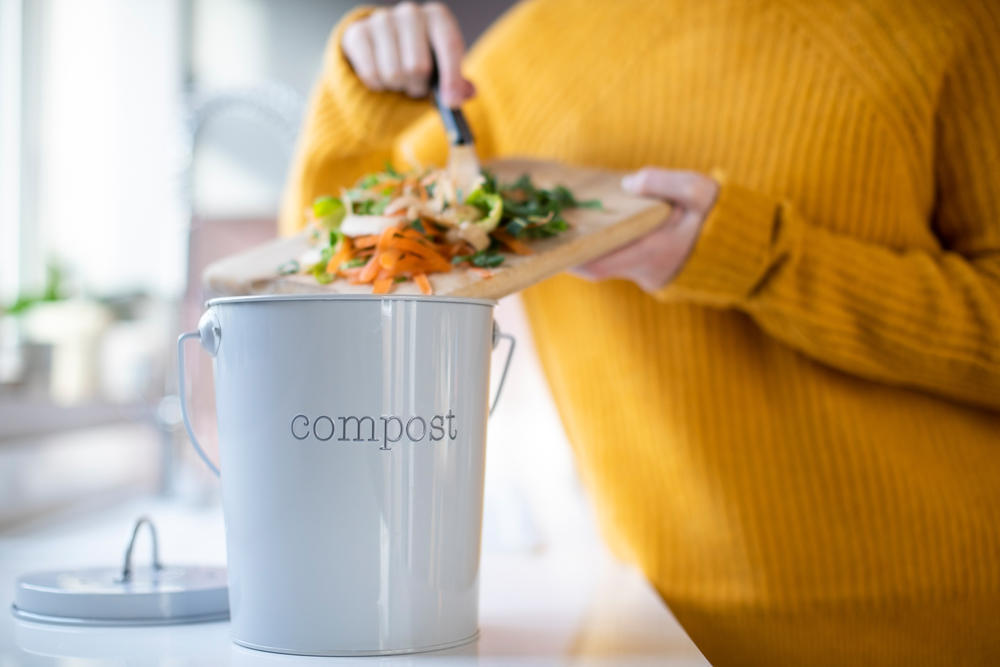
How to Start Composting? Everything You Need To Know About It. Welcome to the Composting Universe! Where you will find everything you must know about it. This is the site we needed when we started so, thinking about that, here we build a wide and clear room where you can dive into composting universe every time you want to. Here we`ll talk about How to Start Composting? and Everything You Need To Know About It.
This is a Compost library, or what we like to call: the Composting Oracle, but without the ambiguity it characterizes the oracles. You ask and you will be answered. No, we don´t know where time goes but we know everything about composting, tumblers, carbon and nitrogen ratio, how to troubleshoot all the inconveniences it may appear, indoor & outdoor composting, vermiculture, compost tea, how to use compost and more.
a. Which is the compost meaning?
b. How works the composting process of solid waste?
c. How much time it takes to compost?
a. Vermiculture or vermicomposting
II. How to take care of compost worms?
III. How many compost worms do I need?
IV. How fast do compost worms reproduce?
V. The Top 10 Vermicomposting Bins to Start your Own Worm Farm
b. All you need to know about: Indoor Composting
I. How to start composting at home?
II. How to choose where to put the compost bin?
III. How to choose the best Indoor Compost Bins?
c. All you need to know about: Outdoor Composting
I. How to start to composting in my garden?
II. Compost Tumbler vs Bin: pros and cons
III. How to build a compost bin from pallets?
I. How to make Compost with coffee grounds?
II. Can I use Ashes on compost?
c. What items cannot be composted?
d. When should I turn my compost pile?
a. Smelly Compost? How to Control Bad Smell on Your Compost
b. How to get ride of Flies in my Compost?
e. Complete Guide on How to Keep a Compost Pile Hot, & it's Benefits.
f. Why are mushrooms growing in my compost?
g. The Good, the Bad and the Ugly: Bugs in my Compost?
a. How to prepare Compost tea, recipe here.
d. Where to buy a Bulk of Compost near me?
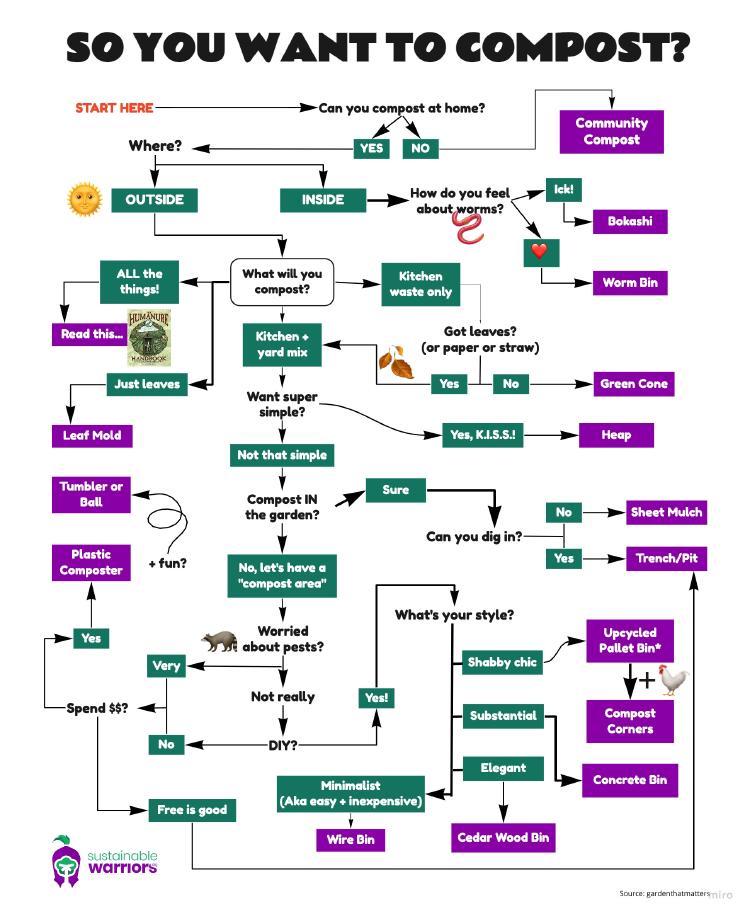
Basically, compost is an organic regenerator of soils that needs organic matter to develop and maintain bacterial life. With organic regenerator we mean that is a natural process of decomposition in controlled conditions (keeping an eye in a few things we`ll tell you around here) to get your own soil or garden nourishment. Compost is the transfer of organic waste into rich black gold. Here you can unblock the 3 keys to understanding the compost meaning and its universe!
But, there is a particularity we like to light up about compost manufacturing: the mesophilic and termophilic phases. As every natural process, composting has stages where the organic matter decay and transform into healthy soil. The mesophilic and termophilic ones, are very important cause they are the ones where the compost heats up to reduce the viability of pathogens and weed seeds (by EPA 40 CFR 503 standards) and stabilizes the carbon such that it is beneficial to plant growth. More info here
Our waste can take different destinations: Landfills, Incinerators, or Solid Waste Municipal Management facilities. This last ones, are the responsible for creating organic marketable fertilizers with the correct management of our solid waste. And why is that important? It is, because it helps to reduce waste, continue the cycle of things and to avoid releasing harmful gasses which deplete the ozone layer. It is another way to make us responsible for what we consume and produce and also, to reconsider the value of compost as a enhancer of soils and gardens without chemicals. More info here
The harvest time could be between 4 weeks till a year round, but don´t freak out. It depends a few things: type of composting you are doing, if you are using a pile or a tumbler. If its a pile, how many times you turn it to aerate, if its a compost bin or tumbler you have to consider the size will determine the cycle`s time, or how frequently you spin it. The size of the food scraps: while tinier the faster they decay. Read this to know the ways you can speed it up! More info here
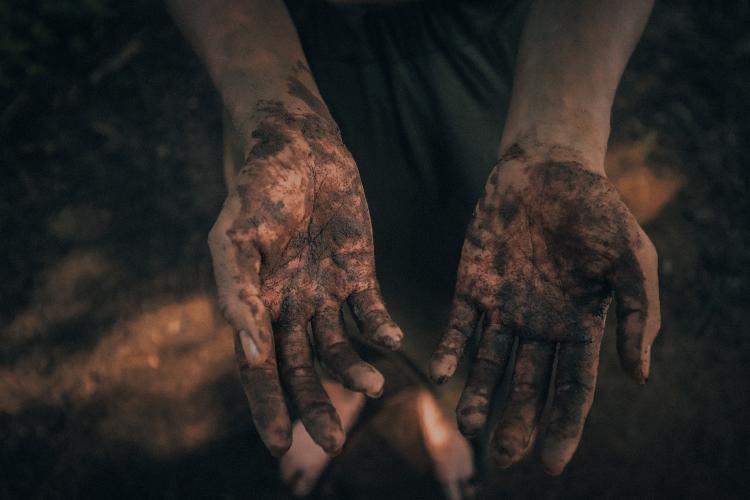
Chris Yang from Unsplash
When compost is ready you can tell by its smell. Have you ever smell the scent of the ground after a pouring rain? Well, this is not so far from that. In this article, we´ll give some advices for you to acknowledge the maturity of a ready-to-use compost. It`s important to know when you can use it to avoid damaging your soil or garden. This is the key for take advantage of compost enhancing properties.
When compost is finished it smell earthy, and looks black without any clue of the food scraps you putted into it before. It has to be a little bit moist but not heat, if its steaming it means microbes are still doing their magic. So, don´t get to anxious, composting will teach us something about patience, when the more you let your compost rest (or what´s called "The Curing Phase") the better quality you will get.
Learn to read the signs of a finished compost, and you will be understanding a lot of the process itself. More info here
Maybe you can guess what it is but, you will surprise when noticing how important are this wiggler friends to our planet. Vermiculture or Vermicomposting is the process of making compost, as the others, but with some extra help: worms. Did you know they are blind but still have light receptors that tell them if its dark or day? Just a curious fact. Anyway, they have already seen how to live an eco-friendly way.
So, The type of composting technique that involves little invertebrates wiggly friends is called Vermiculture. This process involves cultivating worms that excrete vermicompost as they break down the material, awesome eco-friendly fertilization.
Don´t worry, is not smelly. Instead, is really, really, really good to speed up the decomposing process. In another words, worms eat food scraps and, evacuate the famous black gold. Wish we do the same. Come on and take a look at this wiggler world. More info here
A wormery can be set up in any small or big place as long as it is located under the right conditions for worms. Even if you have no backyard, a wormery can be placed inside as well. You really need to keep in mind that worms are animals, and they need to be respected and live properly while in the wormery.
Besides worms are really resilient, there is some things you must know when practicing vermiculture or vermicomposting. They will struggle if the compost temperature rise over the 160ºF. Also, if its too dry. So, as we all, they can´t stand very extreme conditions. It´s better if we learn about how to maintain a great compost weather to keep them safe, and you can do that with a appropiate carbon-nitrogen balance. More info here
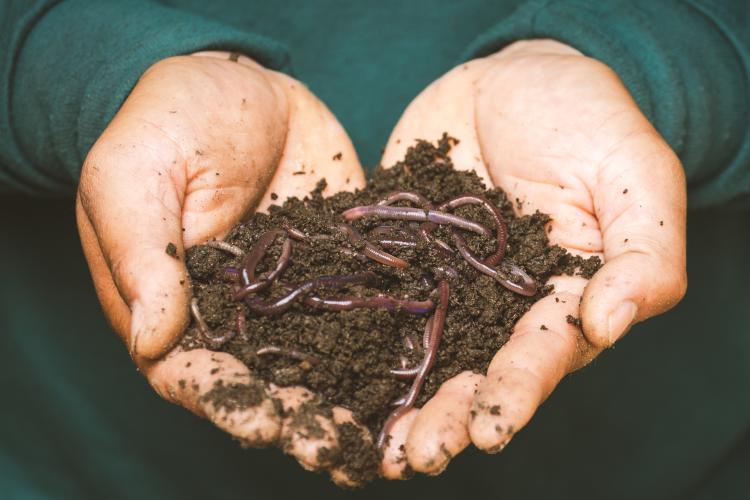
Photo by sippakorn yamkasikorn on Unsplash
They will reproduce fast, so you can start considering two things:
Anyway, you won´t make any mistake buying a little less, because they will reproduce. But if you buy a too many and have a little compost bin they will struggle. So, make sure you start with a handful of worms if you are a beginner.
Here is what you need to keep in mind:
Remember that the number of worms can duplicate over 60 days, in the right conditions. Maybe, one day if you let your compost bin open, they will be preparing breakfast for you. Ok, that won´t happen, don´t freak out. But, they are really confident about their life in the little room you made for them. While they have food (your organic waste), they will be understanding that party goes on.
Did you know that worms are actually hermaphroditic? This doesn't mean they don't reproduce by pair though. The time of how fast do compost worms reproduce can vary on a few conditions. For example, if the worms are too far apart it might take time to reproduce, so make sure you calculate correctly how many worms you should get. To know everything you need about that check out this post on How Many Compost Worms Do I Need to Start Composting.
Summing up, if they are far from each other they can´t match. Imagine what would happen in Sleepless at Seattle if the characters kept the distance. We wouldn´t have the Empire State scene. Well, here is as important as in the movie, without worms finding other worms, the composting process will take longer, and we wont have the fertilizer scenario. More info here
Vermicomposting is by definition the final product of decomposed material through the use of worms, usually red wigglers, white worms, and other earthworms. This process basically consists of creating a mixture of decomposing vegetables or food waste, bedding materials, and vermicast.The result of the process is this called vermicast which, as any kind of compost, is a rich fertilizer for your plants! Do you want to start your own worm farm? Please, stay and check our sustainable reviews for the best vermicomposting bins at Amazon. More info here
If you already think that composting is similar to magic, bokashi composting may seem like fancy magic to you. Here you will learn everything you need to know about this particular composting method with some oriental vibes. All you need to know about a fancy way of composting.
Arigatō to Japanese people for this practice we have learn from them. A traditional way of composting that basically involves fermented organic matter in anaerobically conditions. They used to do it with their own excrement in order to apply it in their rice fields. If I was Japanese at that time I would prefer to not know where the good taste of rice came from. Just joking, in the bokashi process everything is fermented creating good and beneficial microorganisms.
It works "cooking" a special mixture and then adding the organic waste. Something great about bokashi is that is faster (you can see results any time between 14 to 21 days) than traditional composting process, and also you can compost some items that you can´t in the other such as meat, cooked or raw, fish with bones, poultry and its bones, dairy products, can be included in addition to the organic material that is normally composted. More info here
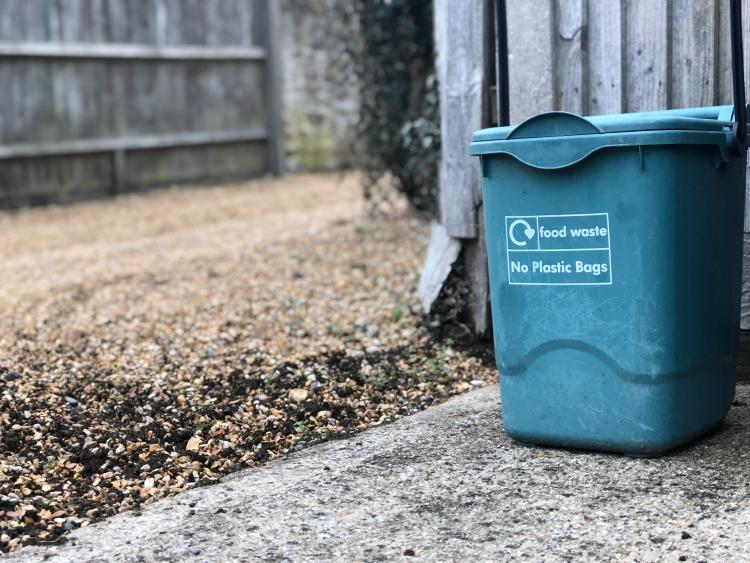
Patricia Valerio from Unsplash
Composting is very satisfying. If you are starting in this, well, let me tell you that the first step is keeping out of your mind that is something difficult or a cumbersome practice. We believe that life is about adaptation to new and better ways of living, while we learn new habits. Nothing is written in stone, and is not about getting rush about changing all we could be doing better at once but doing baby steps.
That´s why we make a list with some useful tips for you to becoming a composter considering these 7 items.
1. Picking the right composting method for you
2. Space
3. Waste Amount
4. Animals
5. Kids and Toddlers
6. Moist and Air
7. Greens and Browns
Read each item in detail and get yourself ready for this trip! More info here
If you decide to go for an indoor composting system, well this post is for you. Here you will find the best tricks about it, to have a successful experience. But, wait, successful here means joyful at the same time, no pressure.
The best bins to start composting are either lidded plastic bins, garbage cans or wooden crates. You can get one of this in any hardware store, gardening supplies market or you can deploy your Diy skills by doing it yourself. Put your favorite list on Spotify and let your creativity fly.
In case you are doing it, there is something important you must remember: Aeration. The decomposing process takes place because there are a lot of (invisible at our sight) beneficial microorganisms. They are the restless workers that eats all the banquet we throw into the bin and turns it into fertilizer. So, oxygen is the main ingredient in this process. That is amazing because, it means that you and nature are doing a co-work. Although we can return the grace by planting trees once a while. By composting we are doing a valuable action. But let´s stop philosophizing and go back to aeration:
So, your bin needs equally distanced holes in the bottom, from twenty-five to thirty-six inches holes, and in the lid as well. On the sides you will have to make two horizontal rows of holes one and a half inches apart from each other (...) More info here.
Like we´ve been saying, start composting is matter of decisions. Whether you live in a big house or a small apartment, there is a way for you, that will suit not only in your space but in your life. Maybe you have heard about bokashi composting, or vermiculture. Is also common the Pile or Trench. Anyway, there are a lot of composting systems. We recommend to read, and swim into all of them, to get a precise idea of how does each one works. An overview of all the composting systems will give you the chance to choose how to start.
Sometimes, there is no time. So, Here is the complete Guide on how to Composting at Home, for you to take a look and start ruminate over the compost idea.
Once you have your compost system, is better if you throw the food scraps in layers to maintain the greens and brown balance.
Composting is something that doesn't need a lot of our intervention, but needs information and some constancy. Spinning the tumbler, or turning the pile, aerating the compost as well, is very important to keep up the process. More info here.
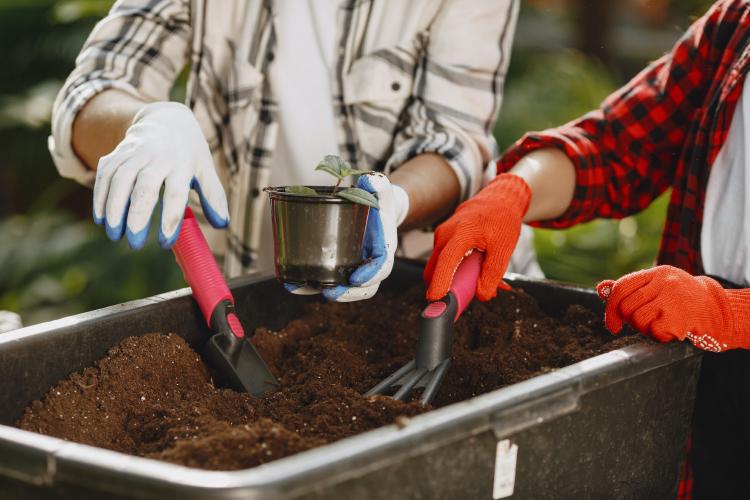
Photo by Gustavo Fring from Pexels
Besides when well-managed compost is not smelly, things happen and may appear some rotten odor if the compost goes more humid that it`s convenient. For that reason is better to set up your compost bin far from the kitchen, in an aerated place. Another thing to consider the place is the animal or kid fact.
If you have one of those, or both, well, better if you put your bin far beyond reach. Most of people ask about if compost bins are bear proof. Well, there is nothing bear proof. Only thing we can do is to not throw into the compost rests of bones, and meat (besides is not recommendable) because it can attract pests, rodents, bears and another monsters.
In the article is very wide and well explained but, we like to anticipate you that is preferred to set up the compost bin on soil, also is better if is near from the plants or vegetable plot where you are going to spread the finished compost. Here for more tips
Continuing in the line of the outdoor composting tips, well, all the experts recommend to think in a practical way. Keep your compost bin handy and near from your plants.
In this article you will see all the outdoor compost bin options, to find out the one that matches with you. For example, there are "No-Turn" Compost bins, enclosed bins which can be handmade or bought, Food Waste Digesters and Tumblers. More info here
Have you ever heard about direct composting? If you have a garden, you can think it like a potential composting area, or vegetable plot. Some people say in the future it will be recommendable to every household have its own vegetable plot to produce a bit of what we consume. That´s not a bad idea. We think that involving in nature processes and connecting with the organic cycles gives us a really good insight about nature`s value.
Composting in your garden is really easy, you only have to choose the perfect area for it, dig a hole and start composting. But we recommend to read a little bit more about it to avoid some issues it may appear. More info here
Pallets are sooo IN. The preferred eco-friendly furniture can also be used in any garden to create a compost bin from pallets. This can be fun. Just get some pallets (be sure they have the “HT” stamp, that means it was treated to enhance its preservation) And let´s get started. At first, is important to choose a right place considering it can smell sometimes, so better if isn´t near the places you usually spend time. Also, its recommended to not place it near trees because roots can sneak around the compost and steal all the nutrients.
How to start creating your own compost bin?
Remember this is a three pallets bin: stand two pallets up so that their longer side is their width, and then overlap them at one end using whichever of the recommended materials written down in the article. To make it sturdier you can use chicken wire, and also make some braces at the corners. It´s really easy, so come to see more info here.
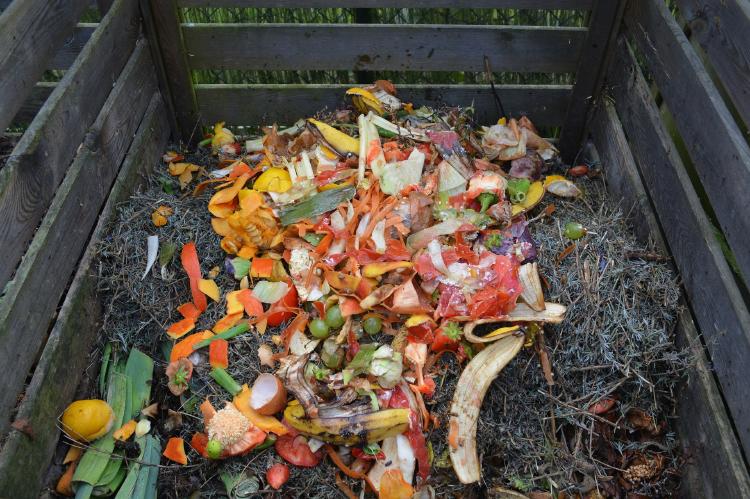
Image by Ben Kercks
Learning how to make a compost pile is one of the easiest gardening projects you can embrace and it brings an incredible amount of benefits into your lives. To get started, as always, you have to choose the location as we´ve been talking before: this will be crucial to avoiding problems with smell, pets, kids and... smell. Well, then you have to build the pile up at the lasagna style: an organic matter layer (called green layer) and then a grass clippings, shredded cardboard layer (called brown one). The balance between greens and browns is the key of a good compost. Then you just should cover it with a plastic sheet and sing it a lullaby till the next time you will feed it. Remember to turn it a few times at the week to oxygen the pile. More info here.
¡Stop! This is really important, in every article you will read about this famous ratio. So better if you come clean with it. I dare to say it is the almost the unique law that compost has.
The compost ratio is the desired balance between carbon-rich ingredients and nitrogen-rich ingredients. In another words, it´s the relation between humid and organic matter and dry/woody material. Don´t worry, you don´t need to measure it like a scientist, but you do got to know which food or material is in each group to troubleshoot different situations it may appear.
Carbon-rich ingredients represent the browns in a compost pile, whereas the nitrogen-rich ingredients represent the greens. The perfect ratio goes to 25/30:1 carbon to nitrogen. To know which ingredients are carbon and nitrogen rich read this.
An image says more than a thousand words:
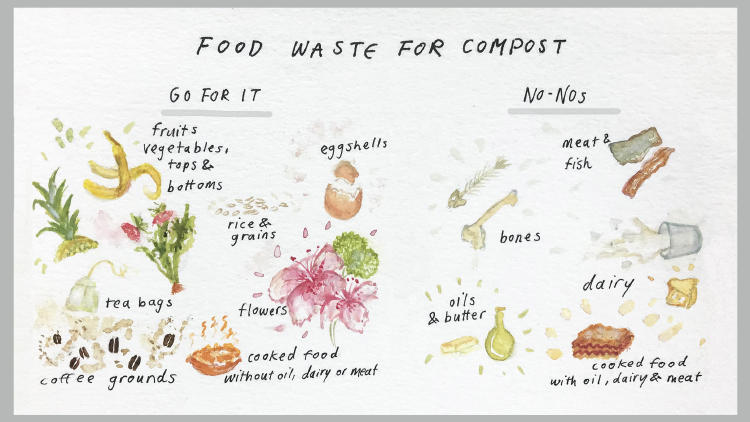
NPR
In traditional composting methods this is what you can´t compost but, there is another way to compost those items by Bokashi composting. This one allows to compost all the forbidden waste in aerobic processes.
Anyway, here is a A Complete List of Things You Can Compost.
Everyone loves coffee, so compost. We have been talking about greens and brown materials, and you may think coffee belongs to the last ones by its color. But no, actually is good because:
Because it has a good amount of nitrogen be aware of how is your compost ratio doing before you add it coffee grounds. If its very humid, you can save the coffee for another time, it will worth it. More about coffe here.
Yes, but not all of them. Let´s go to the point: only wood ashes can be beneficial to your compost or soil, but even no every wood ash. Make sure the wood is not treated or painted, because chemicals can be harmful for your plants, or compost environment. We recommend you to test your soil to know what is missing. In this article, we give you a short instruction for doing a home-made test. Using ashes can add nutrients to the soil:
The best ashes are the ones called "hardwoods" like: Oak & Maple. But there are another ones that are very good too: more info here.
One of the main questions when we start composting is about what can and can not be composted. In a traditional composting method (aerobically) you may know there are a list of items you can´t throw into the compost, otherwise you will be dealing with a something similar to a smelly cat (remember that there are another way to compost those items: bokashi).
So, we made this list to make your composting journey easier. Take a look and learn what you can´t compost and why. More info here
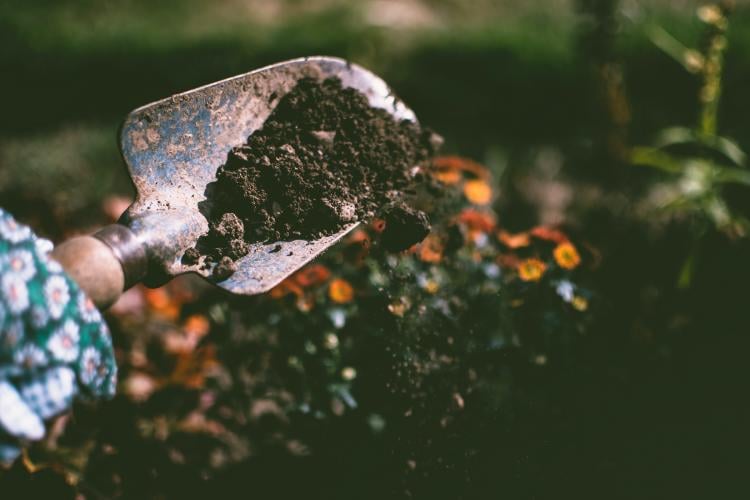
Photo by Lisa from Pexels
Often, more often than you think about cleaning your bathroom and less than the times you desire to be at the beach drinking margaritas. Turning the pile is really important to give microbes the necessary air to keep working. Also is allows a good drainage and maintain the process active.
Remember that a compost pile it has no clock in it. The process itself will vary depending on the amount of food waste you throw into it, the season, the carbon-nitrogen ratio, etc. As we have been seeing, the are a lot of variables involved in this process but, soon or later, you internalize them. Ok, now go and turn the pile. More info here
As is not a mathematical thing, composting can present some unpleasant variations. But there is nothing to worry about because everything can be solved. In this article we deploy each situation you can deal with and how to troubleshoot it.
To anticipate you, compost can appear too dry, or too moist, smelly, or inactive. Is better to prevent those scenarios but unexpected things happen and better be prepared. More info here
Smelly cat, smelly cat, what are they feeding you? No one want a smelly house and composting can, sometimes, be very smelly. That´s not an exclusive attribute of it, but is an indicator that something it´s going wrong. Composting process is about decomposition, that´s right, but in controlled conditions that turns organic matter into rich natural fertilizer. So if your compost is smelly, it means that maybe there is not enough aeration, or you are throwing wrong items into it.
While keeping an eye into a few things, you won`t be struggling with bad smells. Even better, you will be smelling it on purpose, because it smells earthy, like just rained ground. More info here
Who hasn't deal with these little annoying rotten fruit lovers? Well, they have their own play in the natures plan but we prefer they accomplished it a bit far from our house. Did you know that a female fruit fly can more or less lay 500 eggs at a time, and the eggs hatch in one day or even less. So better if you stop them at once for all.
There are a lot of common and industrialized traps for fruit flies as to plant plagues. But we always foster to look after natural ways (there are a lot and they are very simple) because its healthier than chemical products that produce gases which depletes the ozone layer. Learn how to do your own Apple Cider Vinegar trap in just two minutes. More info here
There are a few reasons. We may get you tired by repeating how important is to know which is the perfect ratio of carbon and nitrogen to get a perfect compost. But, it worth it. If your compost is too wet it means it have an excess of moisture: maybe there are a lot of organic matter and less of browns, or you are not aerating enough.
Having a very soggy compost will turn into a very smelly mess, and delay the process so, let´s take of it with these advices. Read more info here.
If the compost is too dry, the process of composting can quickly stop. Remember that temperature is a fundamental ally to the process, because is the one in charge of creating the perfect decomposition environment.
There are some reasons why your compost is dry, it could happen there are too much "browns", or it was long time with sun exposure, a hot hot weather, or the bin is wider than the material you are composting inside of it. Do you want to solve this out and learn how to avoid dryness? Join us, you have more info here.
To keep your compost pile hot, it`s necessary to aim a good materials mix. Which means that you will build the pile in layers between browns (75%) and greens (25%), considering that organic matter (greens) are the ones who maintain the process active, and makes the pile to heat up. Calculating the ratio is always a good way to solve and control the pile`s conditions, but a simple way is to keep an eye on the materials distribution, and the smell. If your compost is getting cold, you can add it some manure, which will help to activate it again. And if it stinks, well it need more carbon- rich materials.
In this article you will find more recommendations to keep your compost pile hot and how to diy your own hot compost system. More info here.
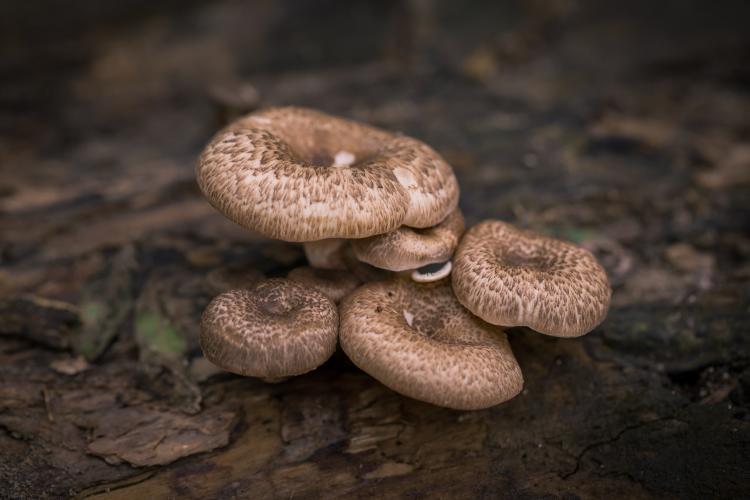
Photo by Anton Atanasov from Pexels
Because life overflows in compost. But, here there are some things you got to know about mushrooms for you to be aware and identify which ones are welcome and which ones we are not invited. Fungi or mushrooms? Are they the same? Actually, all mushrooms are fungi though not all fungi are mushrooms. The most typical mold are the green and white one. You just have to worry when you see a pink mold, that means you may accidentally throw soapy water or detergent.
Mushrooms are very beneficial for the decomposing process, you may want having some growing up in your compost. They speed up the process and enrich the soil. So, come here to know more about them and how to prepare the scene for them to appear: more info here.
We usually avoid getting in contact with bugs. There is a custom to think they are dirty and damaging but let us tell you the truth: they are the best eco-friendly livings and have a key role in a composting process. You may find: ants, pill bugs, maggots, slugs, beetles, etc. In this article you will discover which one is beneficial for you compost and why. They act like truly indicators of your composting process condition. Spoiler: If you have ants, a lot, it means the compost is too dry. So you can add a little of pouring water or some greens.
Make yourself a bug's friend, it's all about learning to coexist with another ways of life before to make them disappear because old beliefs. More info here
There are several ways to use your finished compost. In this article we talk about all the compost benefits, and how to use it to enhance the soil properties and make your garden thrive! You can use it as mulch as well, by spreading it at the top of the soil. Also, it can be used as soils amendment by mix in it with clayey and sandy soils; or to brew your own compost tea as you will see below in the next point..
There is a lot more.Take advantage of your organic waste, and run into the life cycle by composting and giving homemade nourishment to your soil, garden or vegetable plot. More info here
Well, well, well. We have arrived to this point where you are interested on brewing your own compost tea. That is fantastic. Here we`ll join you in this trip on how to prepare compost tea, there is a list of the material you will need, and a simple step by step.
Compost tea is one of the multiple uses that compost can have, and its a really useful one that has a lot of goods for your plants. Really, nature wastes nothing, and here you will know why. More info here
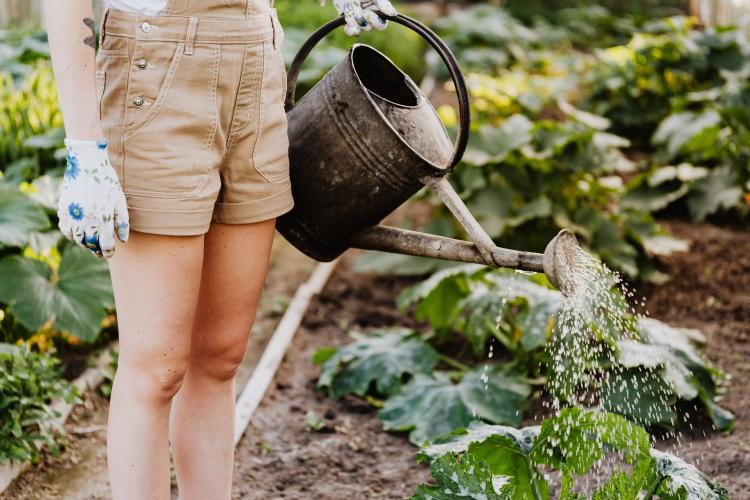
Photo by Karolina Grabowska from Pexels
When the organic waste is getting decomposed, it usually drains a liquid. That liquid absorbs a little of everything that goes through, it can be used to brew a compost tea, as we saw but it can also be damaging if comes from a decomposition process that has no sorting and separation pre-treatment (like some landfills) IT can be really noxious if uncontrolled and contaminate water sources.
Compost tea is the brewing of the leachate in controlled conditions in order to have a powerful spray which nourish our plants and garden. Its a perfect way to boost compost properties and benefit plants without adding more soil. More info here
Start composting is not so far from the beginning of a love story. Because if you think it twice, is a very simple way to honor all the goods that earth give us to live and that is a chance to highlight our way of existing. Beyond that, there are a lot of great results, relieved objectively:
+Improve Soils Health (by balancing its density and boosting it water holding capacity)
+Clean toxins
+Prevent pests
+Nourish plants
+And sooo much much more
No, but they are really good partners like Thelma & Louis. With this two partners in crime, we will steal organic waste from the bins and avoid them to get to the landfills.
You can compost manure, but manure itself is not ready-to-use compost because fresh manure contains excessive levels of nitrogen which may burn the plants in an instant. Its used in different ways than the traditional compost, because we are talking about animal wastes although. So be sure you know everything about it before use manure compost. More info here
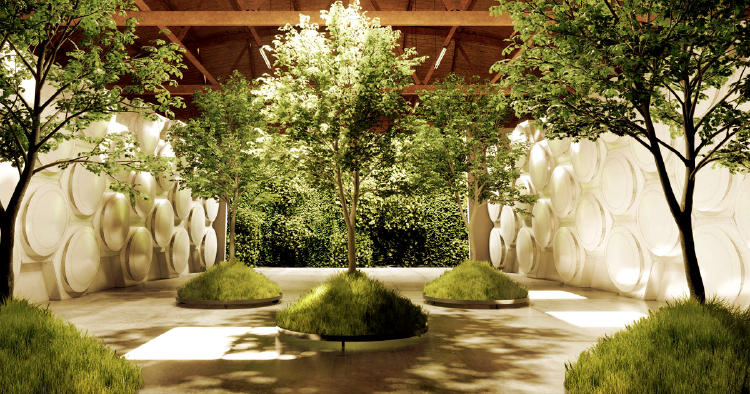
Photo from Futurism
Human Compost is life after life. When we die, there are two traditional ways of our body disposal: burial or cremation. But, thinking about life cycles, and returning earth all what she has given us, there is another way: human composting.
Supporters of the human composting say it will be a step forward for the environment, as the bodies would not take up space, no chemicals would leach into the ground as they do in traditional burial, and the process of releasing carbon dioxide into the air during cremation would be reduced.
Organic reduction occurs inside a capsule, which is modular and reusable. The bodies are covered with wood chips and aerated, providing the perfect environment for natural microbes and beneficial bacteria. In just 30 days, the body is completely transformed into rich soil and comes back to earth nurturing another living creatures. This is really poetic. More info here
Basically, is system of decomposing human feces without relying on water into a material compound made mainly of nitrogen that is similar to humus. Is really cheap and sustainable because it doesn't need water at all, and you may surprise but is odorless if the aeration is correct.
There are two composting toilet systems: self-contained system & split or central system. We invite you to read about them and choose the one is perfect for you. Maybe you are not going to set up one but is great if you know how they work and that there is an option for waste treatment. More info here
Sometimes making your own compost isn't enough for all the work you have to do with it, or you need it now and can't way the process is done. We've been there so we summarize here some places where you can buy bulk compost near you.
We kept in mind the possibilities that maybe you prefer to stay at home, so there is a list to buy your compost online. Take a look at the best options we pick for you. More info here
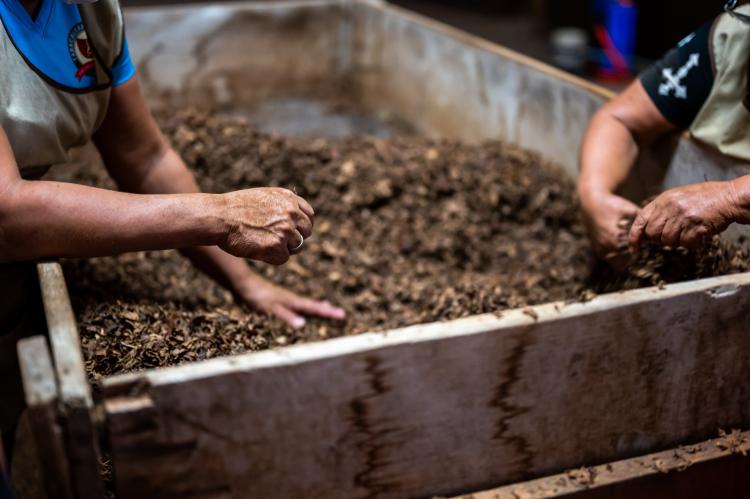
Photo by Conscious Design
Once you have read all of this, you can certainly call yourself a compost nerdy. Welcome to our community!. There is a lot of information about composting, its endless. What we try to do here is to sum up the main data you got to know to start composting, or to share with your friends and family. Is very important to exchange information about this and make new habits around a new relation with nature. We already are living the consequences of climate change, and we think this is a perfect opportunity to rise to the challenge. Everything can be healthier, nicer and harmonious if we determine it so, and composting is a great and proper way to start.